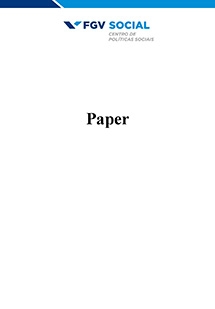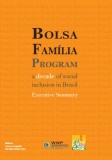
Pro-Poor Growth and Social Programmes in Brazil - Hyun, H. Son, Kakwani, Nanak, Neri, Marcelo Cortes
Sobre o paper:
From a methodological point of view, this paper makes two contributions to the literature. One contribution is the proposal of a new measure of pro-poor growth. This new measure provides the linkage between growth rates in mean income and in income inequality. In this context, growth is defined as propoor (or anti-poor) if there is a gain (or loss) in the growth rate due to a decrease (or increase) in inequality. The other contribution is a decomposition methodology that explores linkages between growth patterns and social policies. Through the decomposition analysis, we assess the contribution of different income sources to growth patterns. The proposed methodologies are then applied to the Brazilian National Household Survey (PNAD) covering the period 1995-2004. The paper analyzes the evolution of Brazilian social indicators based on per capita income exploring links with adverse labour market performance and social policy change, with particular emphasis on the expansion of targeted cash transfers and devising more pro-poor social security benefits





